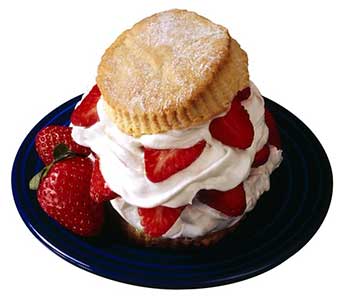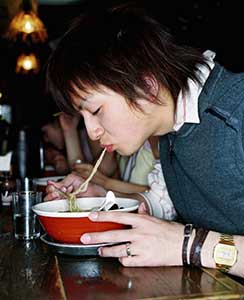Introduction
Each one of us aboard our flight has prejudices of one shape or another. Take where you are sitting, for instance.
- Did you choose your seat for its prime location, its proximity to friends, or a spot that is the center of attention?
- Did you choose your seat to avoid a person with whom you are at odds, to avoid sitting by the person who is a loner, to avoid someone who is known to have smelly armpits, or to
avoid a particular crowd or ethnic group?
For some, their prejudices run deep, rooted by years of dislike and fueled by others' reactions. As the poet, Langston Hughes, says, "They can become sores that fester."

Fester
Let's look at the word fester that Hughes uses. You may not know the word or use it on a daily basis, but can you choose its meaning from the context of the verse?
First of all, the poet is discussing sores. He uses a metaphor for prejudice when he refers to prejudice as sores. We need to think about something that could happen to a sore (prejudice) that goes untreated; it could fester.
Fester means
- Disappear
- Heal
- To become a source of irritation
Nuisance
For others prejudice is not so deep but more of a nuisance. I, for one, am prejudiced against people who serve strawberry shortcake with Cool Whip on top. Why? Let me just tell you; I do not like my cake soggy, and I do not like my strawberries buried under oil.
Does my prejudice run deep, or is it more of a nuisance? Should I be allowed to eat my cake and strawberries in separate bowls and with only whipped cream on top or just get over it?

Jealousy
There are those who are prejudiced against those who dress better than they do, who drive shiny, new cars, and who live in elite neighborhoods. This type of prejudice is more jealousy or envy, but it, too, can fester. As we will study in this unit, there are those prejudiced by gender and ethnic background that still divide our society.

Not everyone thinks the same, has the same work ethic, or even tackles a project the same way. There is never just one correct way to do something or solve a conflict. Unfortunately, through ignorance, people tend to develop patterns that determine how they view other people.
Introduction
History, economy, education, and environment are characteristics of ways people view a group's cultural values. People tend to look favorably upon those who share their own views and shun those who do not. Can you think of any situations in which this is true? We all have differences that end up being cultural to other people.

Example
Let's look, for example at the experience of a teacher who went to Japan. She dined with some other teachers, both Japanese, for dinner at a soba noodle restaurant. As they entered the restaurant, the American teacher heard the most awful slurping sounds one could imagine. She tried to ignore the sound, but it soon became a nuisance.

Once the groups' bowls arrived, the Japanese teachers began to slurp the long strings of soba noodles into their mouths. The American teacher was appalled; they just smiled and encouraged her to slurp. As a matter of fact, slurping equaled a sense of satisfaction with her meal. By not slurping, the American would offend her host. Differences sometimes end up being cultural.
Summary
By studying other traditions, we can learn more about ourselves and how similar we are to other people. Perhaps, we will learn our favorite tradition is unique from all of the others. In the end we may wish we had similar traditions, decide to try a new tradition, or be thankful we have unique ones.
Think About It
- Do you have a family tradition of which you are proud?
- How many of your traditions are centered at holidays?
- How many are centered at meals?
- Are your traditions valuable to you?